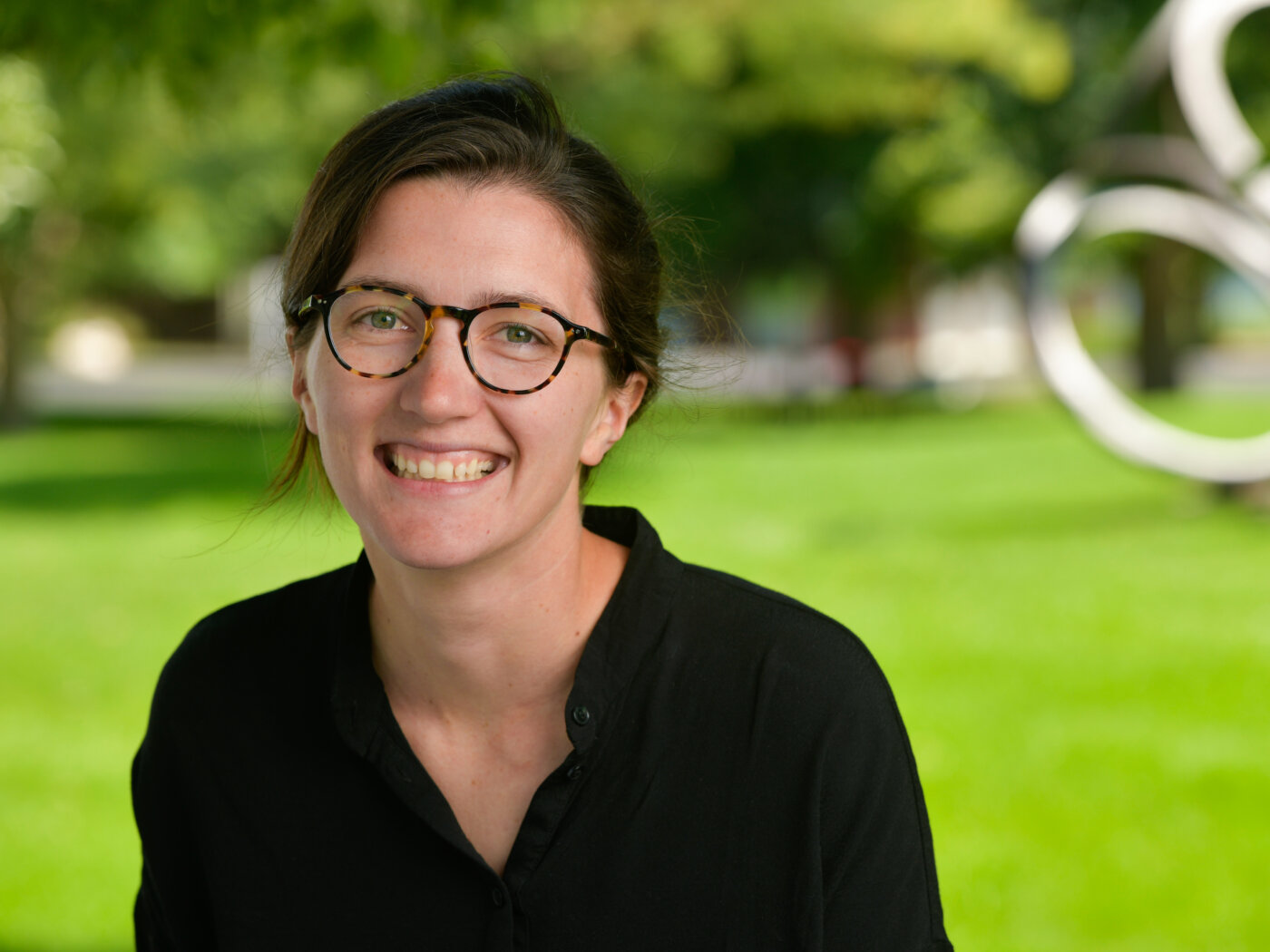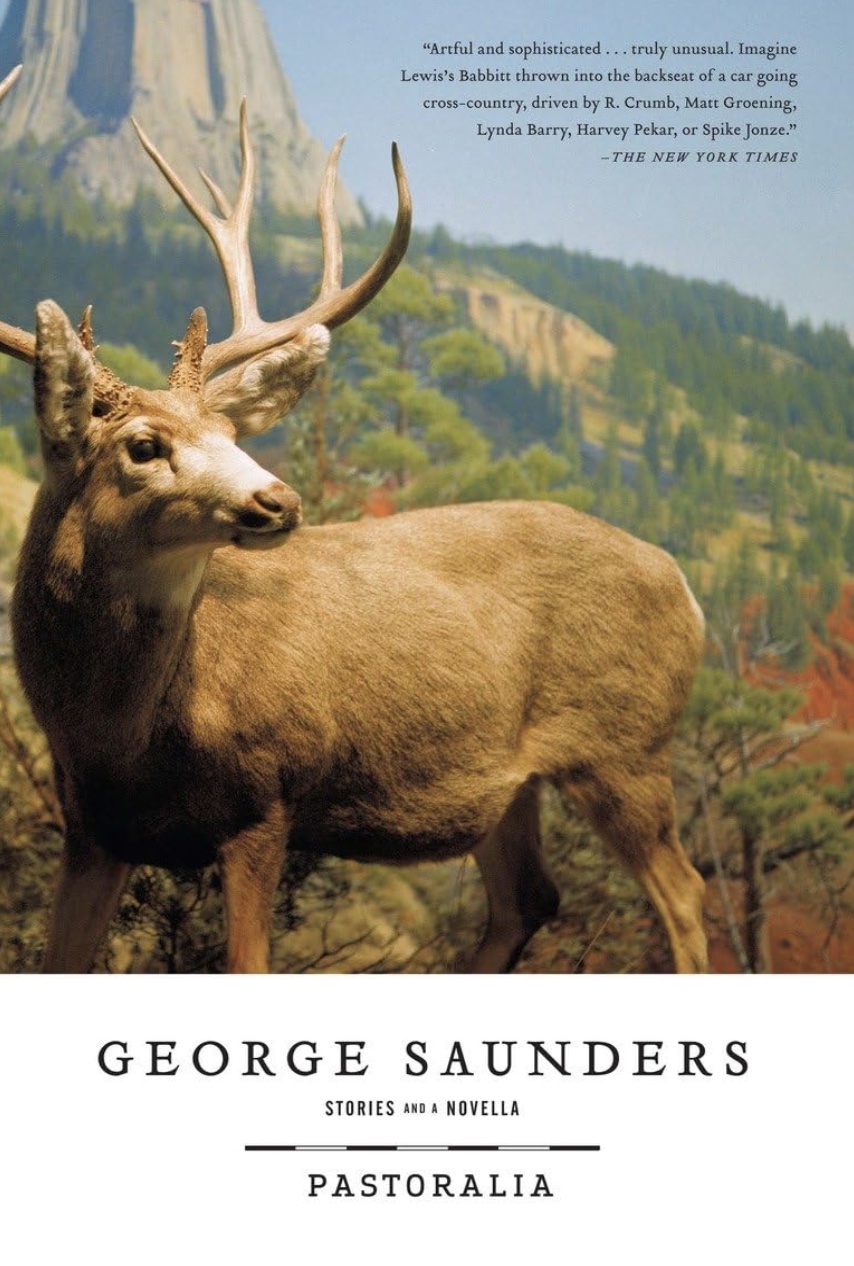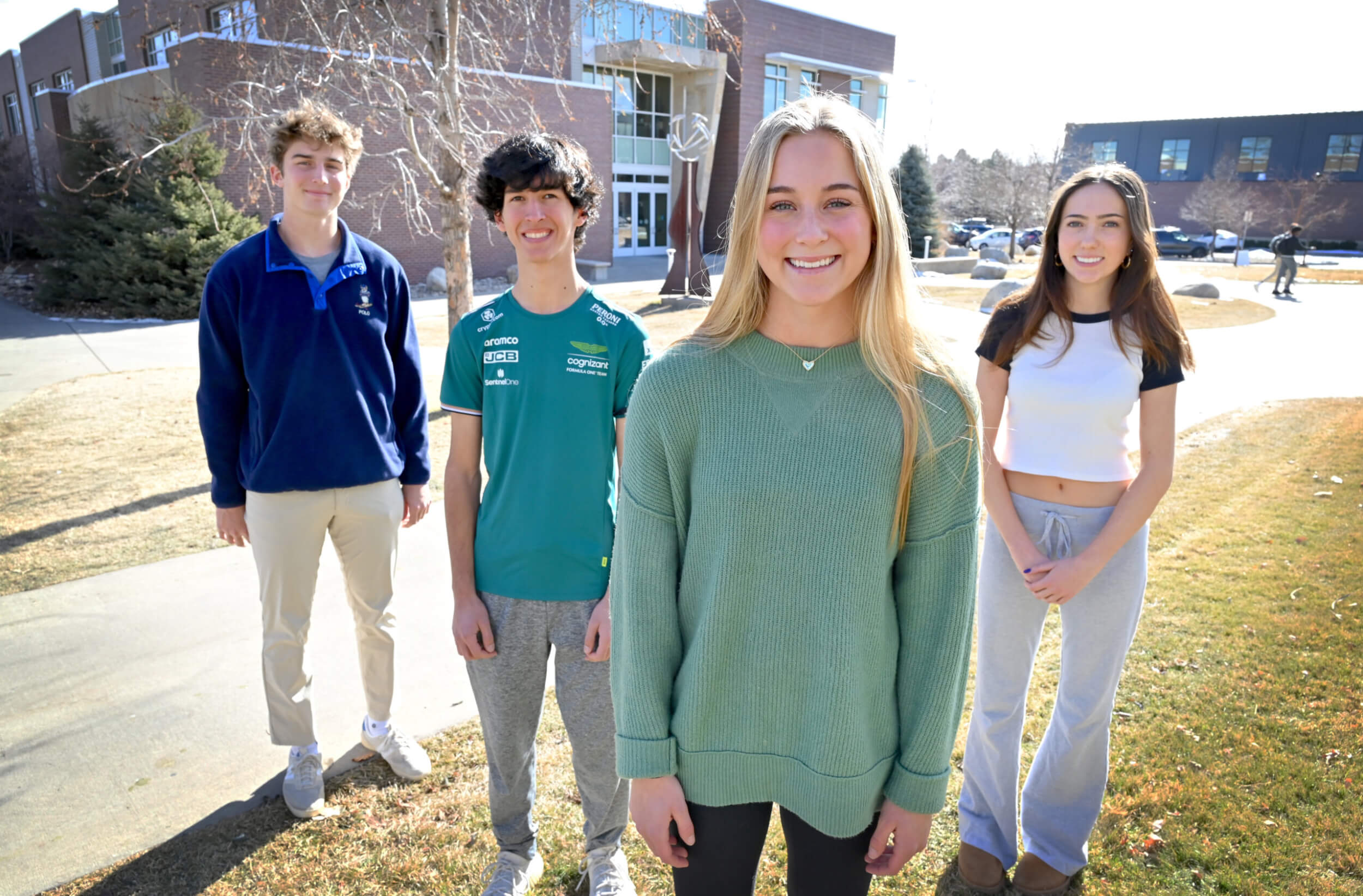Colorado Academy’s fall 2023 Honors English course Literature of Work was, according to Senior Shea Stone, “unlike any other English class I’ve ever taken.”
“The more I learned, the more I found myself noticing that everything I was reading and watching and talking about seemed to reflect topics we discussed as a class. The course transformed the way I think about ‘work,’ and I actually began interrogating my own motivations for working.”

Designed and taught by Upper School English instructor Katherine Snow, the new, trimester-long course asked students to explore the meaning of work through literature, personal reflection, class discussion, and—uniquely—a creative final project based on interviews with professionals in various fields, many of them CA alumni.
Explains Snow, “For a year or so, I had been reading with this course in mind, and some of the articles and essays that I’d most enjoyed and that most directly addressed issues related to work were by authors essentially profiling a profession. It occurred to me that students could emulate these authors’ elegant integration of storytelling, first-person narration, literary analysis, and research, using these great pieces as models.”
Snow was intrigued with the idea of encouraging students to turn their thinking from the philosophical to the practical throughout the trimester, so that they could see the ways that real people’s lived experiences answered some of the questions at the heart of the course: Why do people work? What qualifies as work? What will work look like in the future?
“I mentioned the prospect of involving working CA graduates in the course to our Director of Alumni Relations, Emma Kane,” Snow continues, “and she jumped at the challenge.”
Says Kane, “Having just started in the Director of Alumni Relations role, I knew it was going to take time for me to build connections with the community. But when I started reaching out to CA graduates, I was extremely impressed by the willingness of alumni to share their industry expertise and the foundational skills they have learned along their journey. The CA alumni network offers a wealth of expansive knowledge, and I greatly appreciate that alumni value the opportunity to engage with current students.”
“The collaboration turned out to be an exciting and fulfilling process for all involved,” Snow underscores.


After analyzing texts including Sayaka Murata’s Convenience Store Woman and George Saunders’ Pastoralia—both of which feature workers who “become” their jobs in sometimes troubling ways—the students were paired with a CA graduate working in a field of interest. The idea was to interview the alum about their work experiences and turn the material into a final paper modeled on one of the course texts.
“It was a total creative ‘takeover,’” explains Stone. “I loved the opportunity to make it my own and do something unique.”
The Senior scholar-athlete spoke with Jessie (Thalman) McLaughlin ’06, a Doctor of Physical Therapy and the Director of Panorama Orthopedics & Spine Center’s Highlands Ranch clinic. Coincidentally, Stone had already met McLaughlin when she visited her office for treatment after sustaining an injury competing with CA’s Varsity Girls Lacrosse team, but learning more about her profession was an eye-opening experience.
“I connected with Jessie really well,” she recounts, “because she is so passionate and was an athlete at CA like me. Hearing her insights was amazing: I found out physical therapy is incredibly demanding and definitely not for everyone. It takes so much hard work and compassion for others.”
Stone’s Senior classmate Owen McCandless worked with Cameron Spickert ’06, a software developer whose resume highlights positions at companies such as Google and Adobe. Likely headed for a career in software engineering himself, McCandless was eager to hear Spickert’s thoughts on AI. “It’s such a new thing,” says McCandless, “I knew there’d be a lot to explore there.”
During their discussion, Spickert was able to point McCandless toward the most important thinkers on the topic of AI while emphasizing that no one is in a position to accurately predict the future of such a rapidly changing field.
According to Spickert, the opportunity to speak with a current CA student was equally rewarding. “One thing that stood out to me is the extent to which the students are thinking about the world around them and connecting current events to their studies. Through our conversation, I sensed a deeper interest in the topic we were discussing than just what was required to complete the assignment. As for my own feelings during our chat, I definitely felt some nostalgia for CA, and a renewed appreciation for my time there.”
Senior Ellen Clowes had the chance to learn from former Lt. Col. Jason Tomasetti ’90, a military logistics and communications expert who served with the U.S. Army in Iraq and elsewhere. Clowes was interested in the aspects of Tomasetti’s work that had to do with crisis management, a field she’s considering.
“It was really interesting to speak with Mr. Tomasetti. He talked a lot about having to look at the bigger picture and how, in times of crisis, people get tunnel vision and don’t really see the broader consequences of their actions.”
Tomasetti’s experience in the military impressed upon Clowes the critical importance of planning for every scenario. “Even if it’s almost never going to happen, they’re still preparing for those extreme situations,” she explains. “They want to be able to answer the question, if it does happen, how do we best respond?”
Entrepreneur Andrew Bourke ’04 shared with Junior Raj Keithley another important lesson: Be ready to seize any opportunity, even when it’s unexpected. Bourke, Keithley relates, had an opportunity to start a company with some angel investors after college and while he was living in New York City.
Bourke assured Keithley that CA, at least as much as college, had set him up with almost everything he needed to succeed in the business world. “He emphasized the importance of choosing your own classes and directing your own learning here. One of the things that he most loved about CA was having the freedom to explore different areas, and then take what you want from each of them.”
As Snow explains it, “What my students gained from the alumni interview process truly crystallized one of my own aspirations for the course: giving students the tools to be more observant, perceptive, and thoughtful about their education and eventual career path. Ultimately, I hope that my students come to see work and motivation to work from multiple perspectives, and maybe even live more rich and meaningful lives. Big dreams!”
